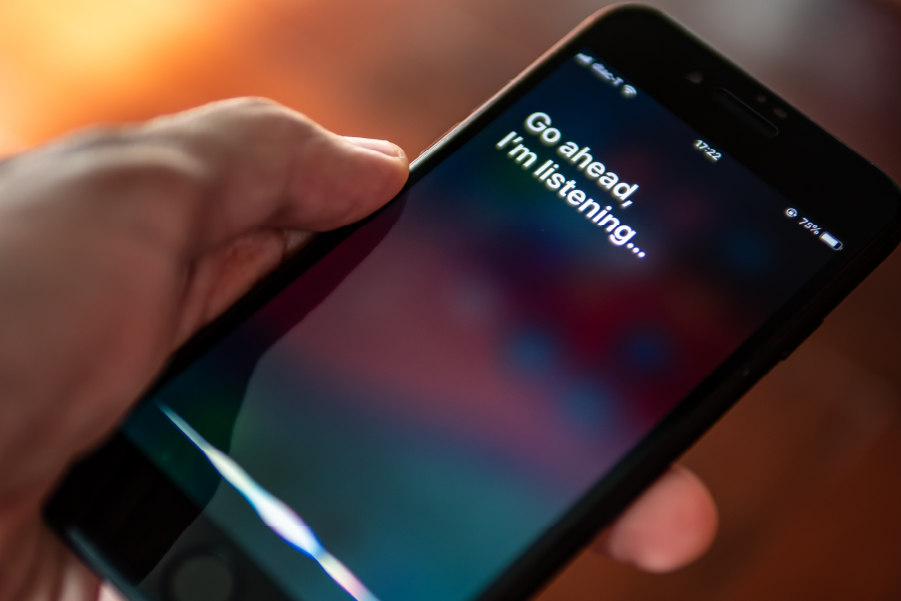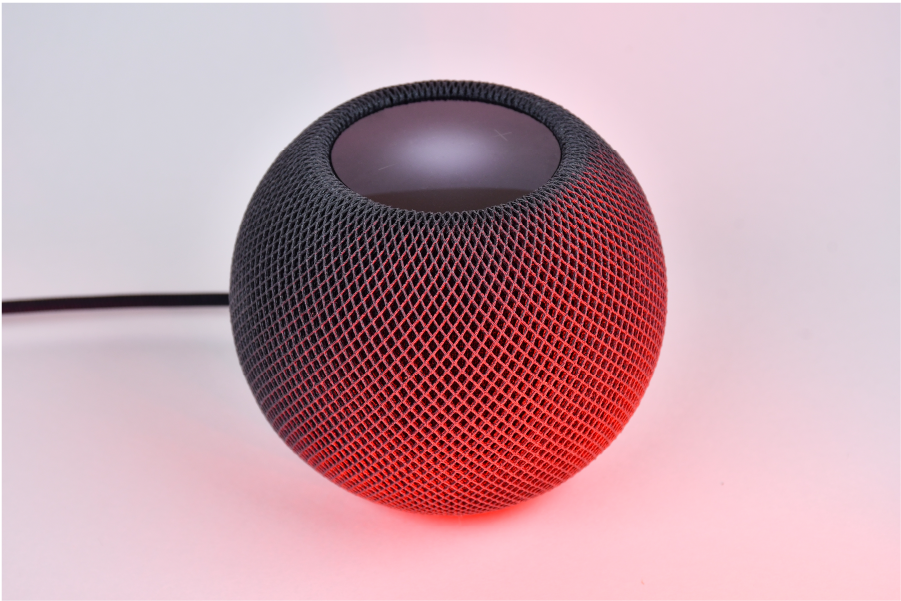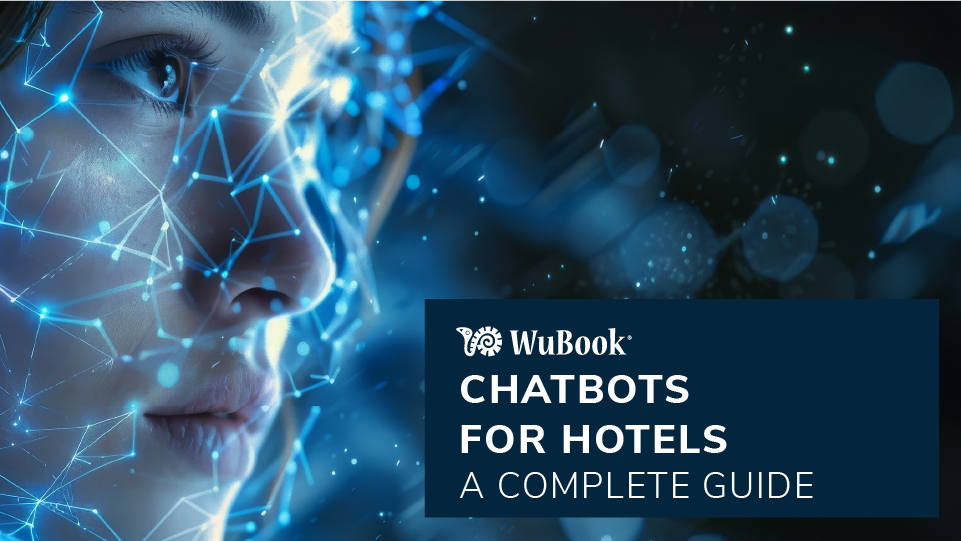Dear WuBookers,
if your motto is “simplify”, then this article is for you. In fact, let’s talk about chatbots for hotels and properties, instant communication systems that can improve the user experience and the operations of hoteliers, with positive effects on revenue as well: here’s what it’s all about.
Chatbots: what they are and how they differ
A chatbot is software that, thanks to artificial intelligence, is able to interact with digital customers through written or spoken conversations that simulate human ones.
It exploits predefined rules, human language processing mechanisms and learning systems (machine learning) to do so.
But not all chatbots are the same, and depending on the level of technological sophistication, they can be more or less advanced: they can act as a simple automated textual responder, or they can behave as true virtual assistants.
As of today, in fact, two macro categories of software can be distinguished:
- Declarative chatbots, meaning they are based on rules set from the beginning by a human being. This is the most common option that allows the generation of conversational but limited responses, often resulting from a user’s choice, necessary to move the conversation forward. A typical case is the pop-up that opens on the property’s website and asks the customer if they are looking for room type A or B. To proceed, the user must select one of the proposed solutions-often in button form – and thus follow the whole process;
- Predictive chatbots, based on AI (artificial intelligence). Apple’s Siri and Amazon’s Alexa are two fairly well-known examples of what is meant by digital assistants. Through an advanced combination of predictive intelligence and data analysis – of other users’ and the individual’s behavior – these chatbots are able to respond more interactively and convincingly, making personalized recommendations and anticipating any specific needs. Moreover, thanks to continuous self-learning, they are able to improve over time, refining their understanding of requests and offering increasingly timely solutions.
The use of chatbots is not limited to the hotel industry, but certainly the hotel industry can reap several benefits, both practical and economic.

5 good reasons to use a chatbot in your hotel
The benefits of using a chatbot are many and range from operational efficiency to guest satisfaction: let’s look at them in detail.
1. Convenience and responsiveness
A chatbot never sleeps and is therefore available to answer users’ questions at any time, 24/7.
This means not only resolving any concerns in a timely – and hopefully correct – manner at any time of the day or night, but also relieving internal staff of this management (thereby reducing work time and potentially costs).
From the customer perspective, being able to rely on an immediate automated support tool is certainly more appreciable than having to wait for a response for several hours or even days. Not to mention the fact that interaction with the bot may occur at a potentially “hot” moment for the customer, i.e., at the decision-making stage, when he or she may be close to reservation: receiving feedback right away could promote conversion.
2. Increased direct reservations
In this regard, a chatbot can significantly contribute to increasing direct reservations on the hotel’s website or social channels. In addition to the site, in fact, the chatbot can also be implemented on social media or instant messaging systems. In the simplest cases, the software will resolve users’ doubts, directing them to the right solution. In more advanced ones, however, it can act as a virtual assistant, thus guiding the user throughout the online reservation process.
3. More opportunities for upselling and cross selling
Similarly, the use of artificial intelligence can ensure personalized suggestions based on user behavior and preferences, increasing upselling and cross-selling opportunities.
In addition to enhancing the overall user experience with suggestions of places to visit, attractions to see, and travel tips (like a modern concierge), the chatbot can in fact recommend activities and packages offered by the property, such as spa treatments, tastings, and even upgrades to the selected accommodation.
4. Simplified information access and retrieval
In most cases, chatbots also allow trend data and performance metrics to be traced: an essential overview for hoteliers who want to check the frequency of use and quality of responses given.
Then again, even users who start interacting with the bot may want to go back a few steps in conversations, especially longer ones. For this reason, many of the solutions on the market also offer the option of storing response history, a feature that in real life – in physical interaction with a person – would not be possible.
5. Automated marketing activities
How many times have you promised yourself that you would ask your hotel guests for a review and then, caught up in your various activities, you didn’t do it? In the absence of automation systems or specific e-mail marketing actions (and without considering the initiatives already put in place by OTAs to collect feedback within portals), you can leverage chatbots for this type of communication as well.
A message that appears on social channels can be more obvious and friendly than an email and encourages the customer to make a positive judgment, especially if their entire stay was characterized by immediate availability and assistance, even through the chatbot itself.
These are the main advantages of using a chatbot for a hotel. The cons depend greatly on the individual software and/or its compatibility with the property and systems already in use. In general, the adoption of a chatbot may prove to be ineffective if it is not declared as such. Although they can simulate a human conversation, it is important to signal to users that they are not real people to avoid frustration and disappointment (with an outcome totally opposite to what they were implemented for).
It is then important to consider cost, maintenance, and ease of use, as well as other general aspects.

How to choose the right solution for your property
Like any other initiative aimed at improving user experience and brand reputation, the chatbot must also be contextualized within the property in which it is to be placed. In other words, in order to choose an appropriate chatbot, it is important to first take into account the specifics of the property itself: the number of requests and reservations it receives each day, the type of offer, and the expenses it faces.
Having made this necessary introduction, let us review the key aspects that should be considered before proceeding with the implementation of the chatbot for the hotel:
- multilingual support: to give truly useful support, including overcoming any staff language barriers, it is important for the chatbot to support multiple languages;
- multichannel: if you intend to offer a comprehensive and widespread customer care service, this is definitely a feature to check out;
- machine learning: this is especially true for the more advanced type of chatbot, which can learn and improve through data derived from its own use;
- reports and analysis: to be able to verify usage data and draw conclusions useful for understanding the target audience and its needs in order to improve the service;
- dashboard: that is, a control area where you can find open tickets, correct any errors, and handle requests that the bot was unable to resolve on its own;
- integration with systems already in use: it is important that the bot communicates with the tools already in place, for example, the hotel PMS and the website, in a more or less advanced way depending on the software chosen and the needs. For example, by creating the site with Zak, WuBook’s hotel management system, you can easily install the chatbot through the dedicated area.

As previously mentioned, a lot depends on the property and its customer management.
Although predictive chatbots will become increasingly common, in some cases more rudimentary automated response systems may suffice, tasked only with answering frequently asked questions instead of the Staff, who are busy with other activities.
In others, however, adopting basic software risks contradicting the brand image (think of a luxury hotel that boasts personalized service for each customer), thus lowering the level of perceived quality.
Carefully evaluating these aspects as well can help make the right choice.
